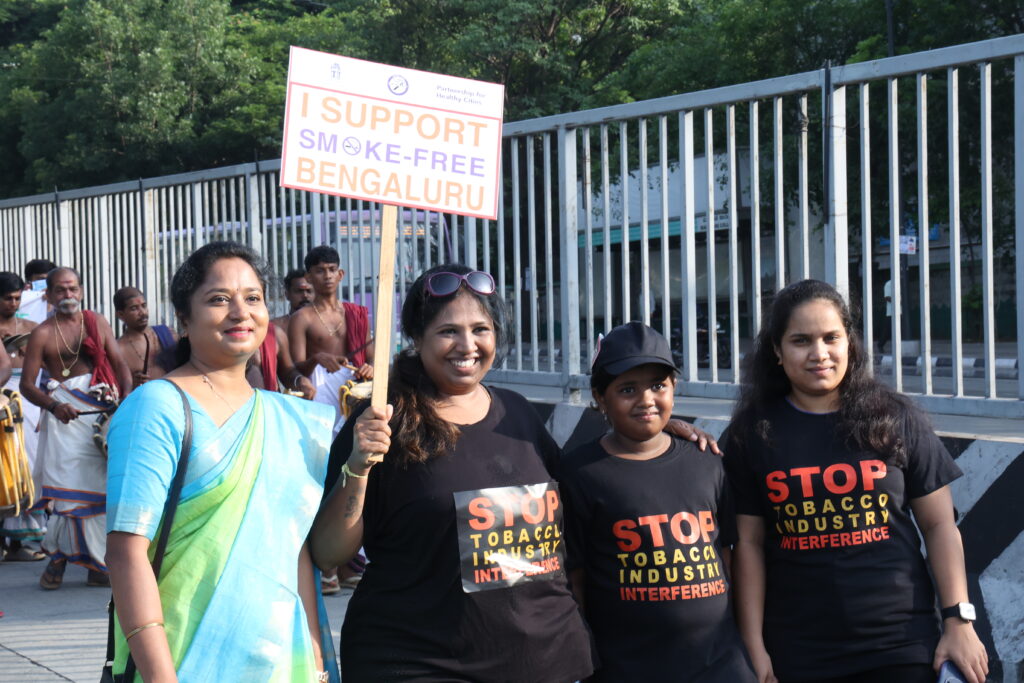These urban centers are preventing noncommunicable diseases and injuries through the Partnership for Healthy Cities.
When cities lead, powerful change is possible. As 2024 comes to a close, we spotlight five cities in the global Partnership for Healthy Cities network that turned public health ideas into action. Noncommunicable diseases (NCDs) and injuries are responsible for over 80% of all deaths globally, despite being largely preventable. The policies designed and passed by cities, several with technical support from the program’s Policy Accelerator, will help reverse these trends, showcasing the best in local public health action.
1) Hookah ban in Bengaluru, India

Bengaluru, India was pivotal in the adoption of a comprehensive state-wide hookah ban by Government of Karnataka. The ban prohibits the sale and consumption of all forms of hookah—both tobacco and flavored—in public places such as bars, lounges, cafes and hookah parlors. The policy win is a culmination of advocacy activities and collaborative efforts between key stakeholders at the local and state government level, including the city’s Smoke Free Bengaluru initiative.
2) Healthy schools in Córdoba, Argentina
A new decree in Argentina’s second largest city mandates that all municipal schools and educational facilities serve only food and beverages listed in a new set of “Healthy Food and Beverage Guidelines,” affecting approximately 15,000 schoolchildren. Upon signing the policy, Córdoba Mayor Daniel Passerini said, “This new policy will help us prevent diseases and injuries—such as obesity, diabetes and cardiovascular diseases—even before they start.”
3) Safer streets in Lusaka, Zambia

Lusaka adopted a “Cycling and Pedestrian Safety Policy” mandating that all new roads in the Zambian capital include safe bike lanes and pedestrian routes. Mayor Chilando Chitangala (pictured above, center) has put the weight of her office behind these citywide improvements.
4) Healthier food in Melbourne, Australia

Melbourne’s newly-adopted “Food City 2024-34” policy is set to transform the city’s urban food environments, laying out a plan to increase access to healthier, safer and more affordable food for Melbournians over the next decade. Initial implementation includes the introduction of healthy food standards in council-owned facilities, events, contracts, programs and services, reshaping the types of food served and sold throughout the city.
5) Menu calorie labels in Quezon City, Philippines
Quezon City adopted a new calorie-labeling ordinance with strong backing from Mayor Joy Belmonte. The measure, a first for a Southeast Asian city, will require restaurants, fast food chains and other food establishments to publish the number of calories in food items on their menus. The policy will take effect in three stages over the course of three years.
There’s no disputing the benefits of NCD and injury prevention policies of this kind to the millions of residents of these cities; 2024’s five-city total is a record for Partnership cities passing policies in one calendar year. These cities are helping their residents stay healthy and setting an example for what other cities achieve through the network.
About the Partnership for Healthy Cities
The Partnership for Healthy Cities is a prestigious global network of 74 cities committed to saving lives by preventing noncommunicable diseases (NCDs) and injuries. Supported by Bloomberg Philanthropies in partnership with WHO and the global health organization Vital Strategies, the initiative enables cities around the world to deliver a high-impact policy or programmatic intervention to reduce NCDs and injuries in their communities. For more information, visit https://cities4health.org.